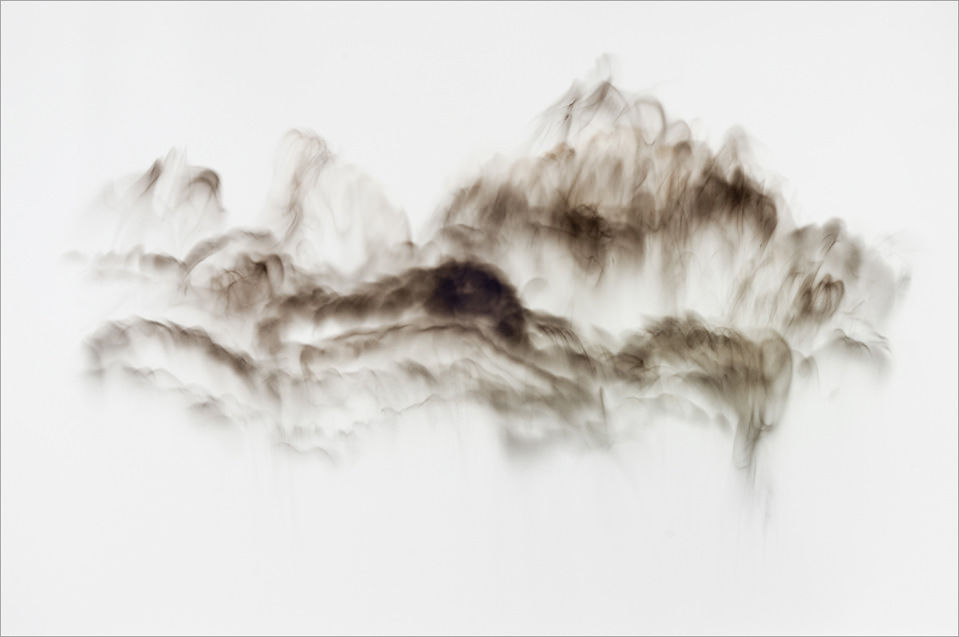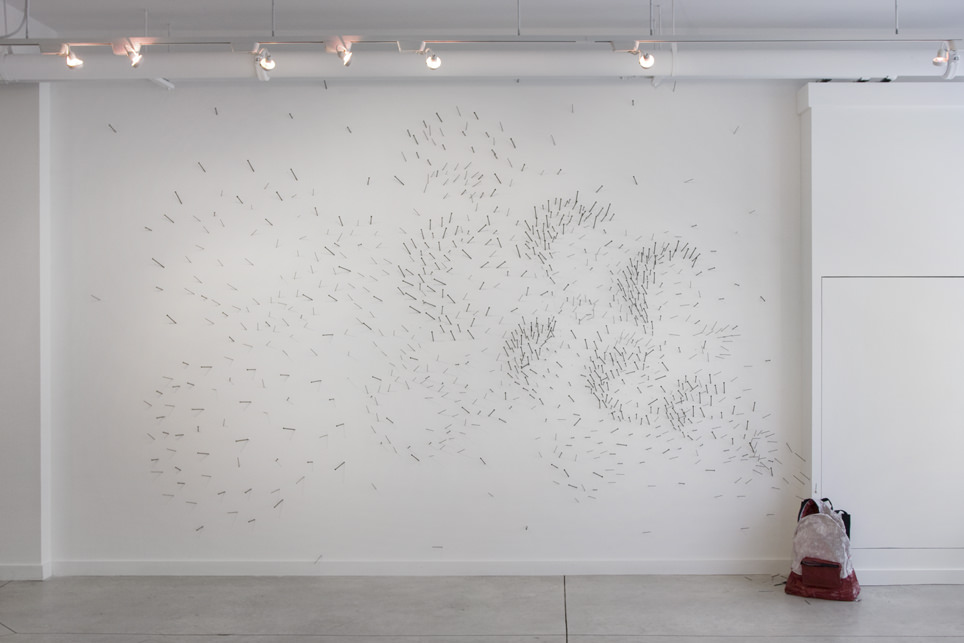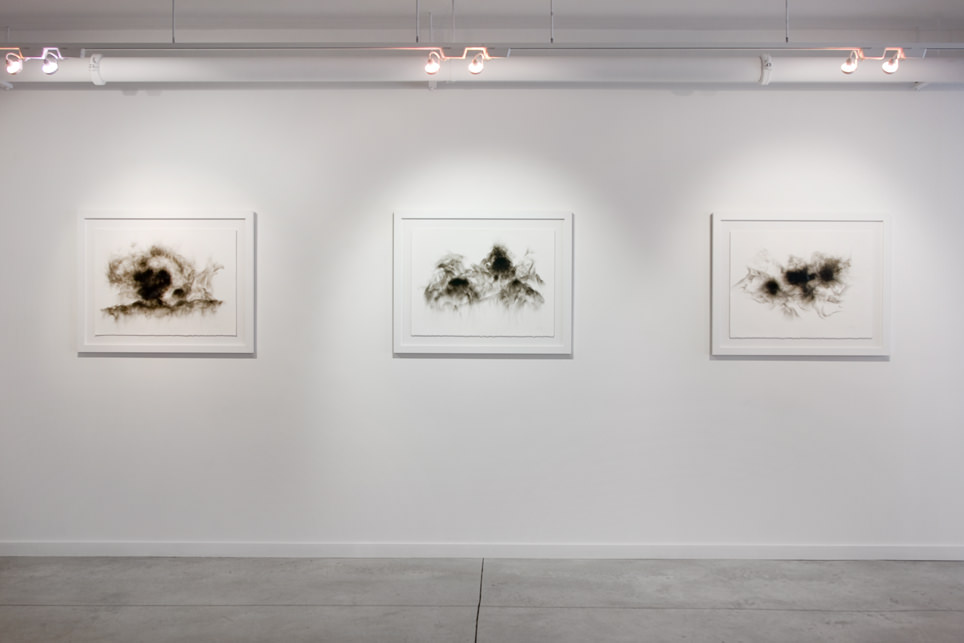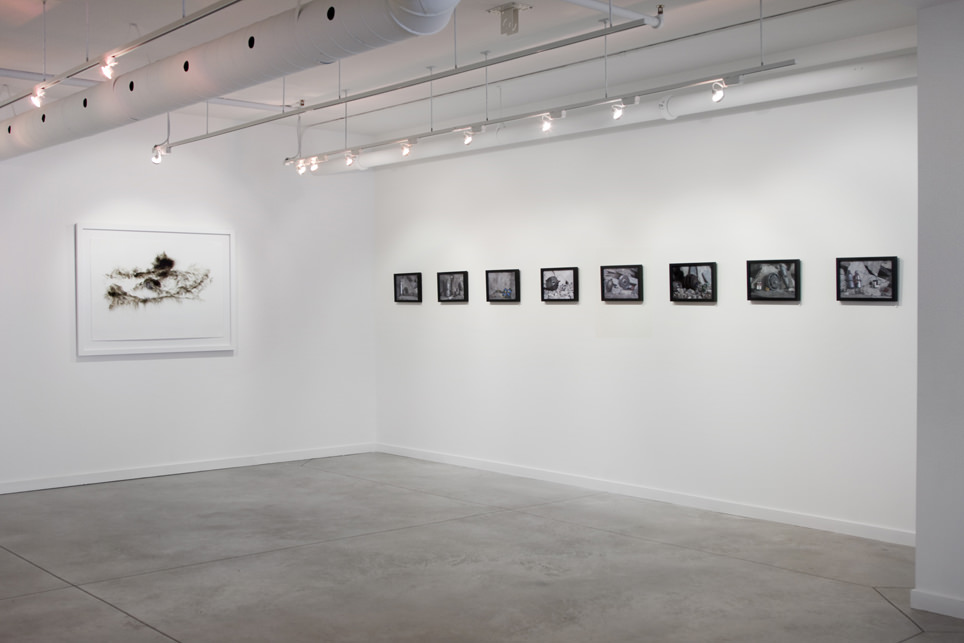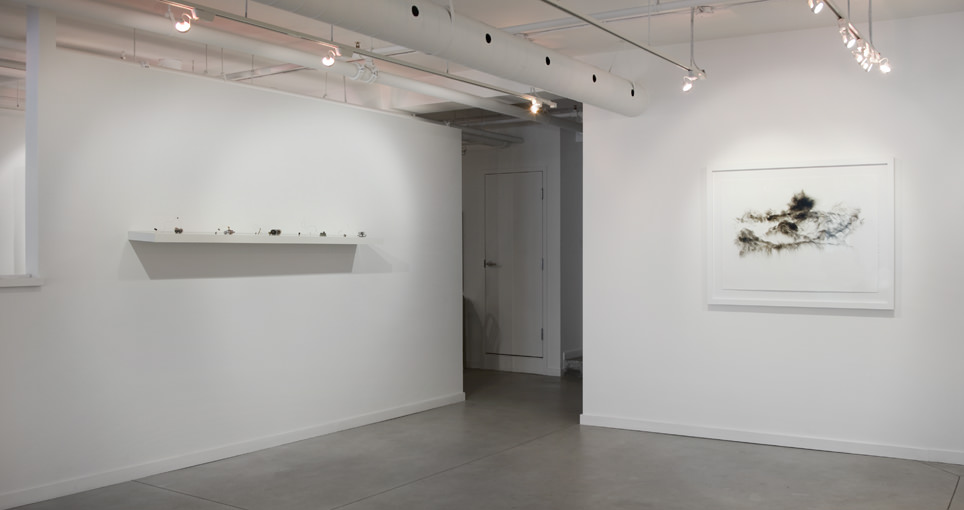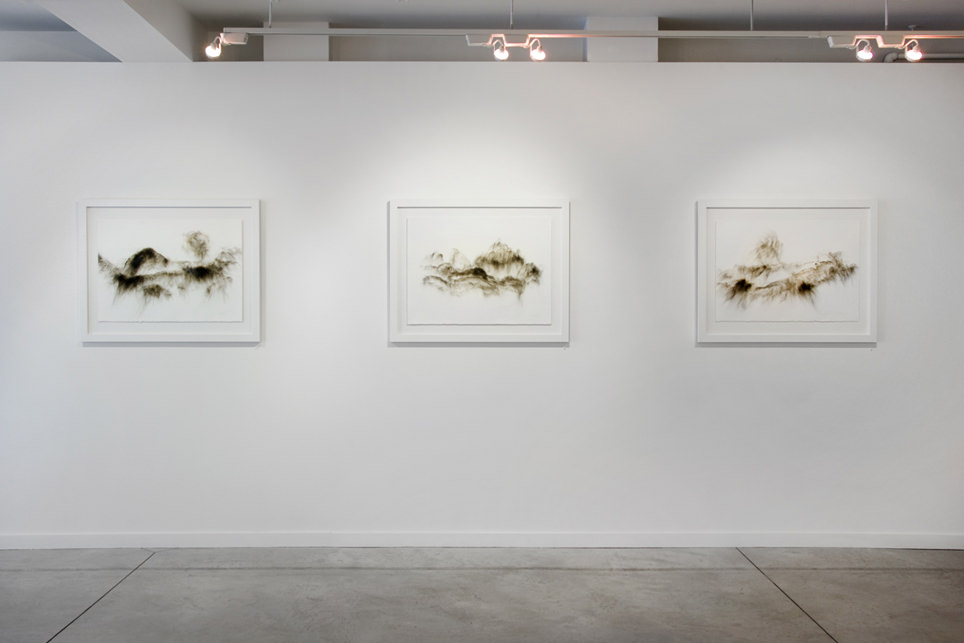Conventional Weapons
Kate McQuillen, Solo Exhibition
November 12 – December 23, 2011
Opening Reception:
Friday, November 11, 6 – 9 PM
Open Panel Discussion between Kate McQuillen and Alyson Rowe, Moderated by Rachel Farquharson:
Saturday, November 12, 2 – 4 PM
An abridged video of this event can be found here.
exhibition statement
This year marks the official ten-year anniversary of the "global war on terror": on October 7, 2001, the US and British forces began airstrikes on Taliban targets in the Middle East. Terrorism is by definition fueled by fear; it institutes uncertainty as an offensive tactic. In recent years, warfare has shifted from high tech operations to slipshod IEDs, shoe bombs, and suicide attacks. The ability to transform everyday objects into catastrophically dangerous weaponry has made the potential for war today ubiquitous.
Kate McQuillen offers a civilian viewpoint on war, filtered through the lens of a theoretical artist. Her work in Conventional Weapons does not concern a direct experience of combat, but rather the sublime notion of its possibility. As the viewer enters the space, a backpack, mid-explosion, projects nails from its core. The horrific effect of the backpack tableau, frozen between the moment of detonation and resulting devastation, is immediate: it depicts the dual reality of both an unsuspicious, everyday personal object and a violent, carefully calculated surprise attack.
McQuillen's smoke paintings touch on a similar duality. The billowing masses, made with captured traces of carbon from ignited matches, mimic natural, atmospheric landscapes. McQuillen's process demonstrates an improvised approach to mark making itself; the artist's control of the dangerous element is palpable, and the potential, but restrained, singe of the paper surface is as resonant as the magnificent forms, themselves.
The artist's material improvisation also parallels the makeshift nature of the low-tech weaponry - the objects of our fears. McQuillen's photographs capture a tangle of recognizable objects like eraser heads, air canisters and ball bearings in a sea of concrete. The odd pairing of these bits comprise a whole that is everything but commonplace, mirroring the disquieting subtleties of contemporary IEDs. While these images serve as assemblages of the absurd, their sculptural counterparts demand a distinction: the dimensional presence of the suite of works imposes an urgency to discern the usual and the suspicious.
Conventional Weapons, as a poignant articulation of the inability to recognize the harmless from the disastrous, is a reflection of the political state of the contemporary civilian. In his essay History, The Sublime, Terror: Notes on the Politics of Fear1, critic and theorist Gene Ray orders a call to action: "we need to grasp how the brutal atrocities that strike us with fear today in fact function as means by which the global status quo maintains power and hold over us". McQuillen's exhibition rises to this call; it exposes the psychological implications of a culture governed by terror, and isolates the sublime aspect of improvised warfare in an effort to reveal its absurdity.
1. Ray, Gene. "History, The Sublime, Terror: Notes on the Politics of Fear". Static Issue 07: Catastrophe. July 2008. London Consortium. Web 27 Sep. 2011.
about the open panel discussion
War Child's Alyson Rowe will join Kate McQuillen in an open panel discussion moderated by Rachel Farquharson concerning both the direct and indirect implications of war on society. As Senior Manager of Community Development for War Child, Alyson Rowe's humanitarian efforts have taken her to war-struck countries around the world, and her experiences with communities affected by war brings a dynamic facet to the conversation of McQuillen's Conventional Weapons.
about the artist
Kate McQuillen is a Chicago-based artist working mainly in print and installation. In the past year, she has received numerous residencies, in the U.S. and abroad: Ox-Bow School of Art (Michigan), Open Studio Printmaking Center (Toronto), Frans Masereel Center (Belgium), and the Columbia College Center for Books & Paper Arts (Chicago). She has exhibited in Montreal, Toronto, Boston, and Chicago.
McQuillen's work explores iconic American technologies with roots in military research, and how they relate to American culture and identity.
